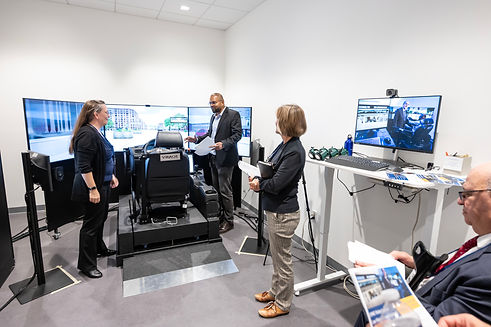Future Trends
This is a curated series of reports designed to shed light on emerging trends. Our insights are built on exclusive, high-level conversations with our distinguished network of global leaders. Use these insights to inform your future strategy.

Understanding the Hydrogen Economy
Opportunities and Challenges
Release Date: August 2024
Explore the future of clean energy with the GFCC’s latest report on the hydrogen economy. In March 2024, the GFCC hosted an exclusive Hydrogen Economy Expert Session, gathering insights on how nations are positioning themselves in this emerging market and sharing the latest advancements. Aligned with the GFCC's 2023 Call to Action, Innovate the Sustainable Future, this report highlights key takeaways from the session and offers valuable insights to drive sustainability through innovation. Discover how hydrogen can shape a cleaner, more sustainable energy future by reading the full report.

Future Skills
Lessons and Insights from a Review of Innovative Skills Development Initiatives
Release Date: July 2021
The Future Skills report was launched to shed light on the megatrends affecting the global skills landscape and benchmarking innovative schools and programs operating in over 15 countries. The report unveils how structural transformations in an increasingly complex reality will unlock new demands for digital skills and STEM, blended with “soft skills,” such as critical thinking, creativity, problem-solving, resilience, adaptability, and teamwork.

Connecting Farm, City and Technology
Transforming Urban Food Ecosystems in the Developing World
Release Date: November 27, 2017
Smart integration of technology can help create sustainable urban food ecosystems (UFEs) for the rapidly expanding urban population in the developing world. It can increase production of nutritious food in the cities and surrounding regions where the food is consumed. Technology, especially recent advances in digital-enabled devices based on internet connectivity, is essential for building UFEs at a time when food availability is not meeting demand. For the first time in human history, food production will be limited on a global scale by the availability of land, water and energy. By 2050, two thirds of the world will be urban, with a net world population growth of 2 billion people (increasing the global population to nearly 10 billion) — expected to occur in urban regions in the developing world.




